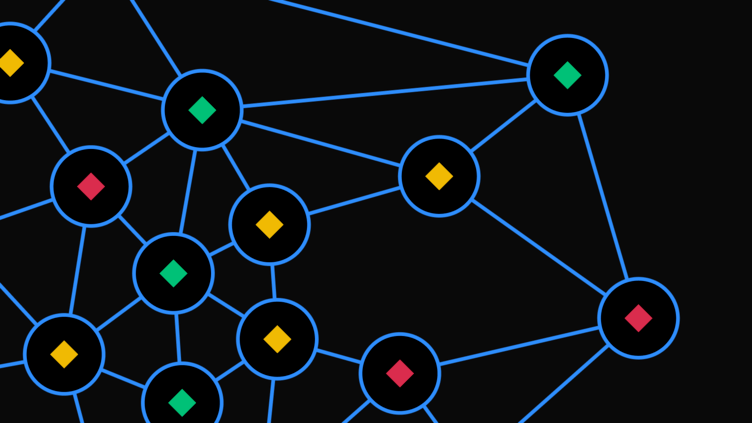Using Blockchain technology, is it possible to collaborate with others from around the world without knowing each other, to set your own rules, and to make your own decisions? DAOs, on the other hand, are bringing this vision to fruition.
DAO (Decentralized Autonomous Organization) is defined as an organisation represented by rules encoded as a transparent computer programme, controlled by members of the organisation and not affected by a central government. There is no need for managers because the rules are written directly into the code.
In order to find a solution to the question of “how can we exchange values in a trusted environment” many internet users and future generations plan to form social organisations. Internet users worldwide want to organise themselves safe and effective way to work with like-minded folks worldwide even though Blockchain enables automated trusted transactions and value exchanges, according to Ethereum.
In general, Bitcoin is regarded as the first fully functional DAO, as it has been programmed with rules, operates independently, and is coordinated by a consensus-driven protocol. In the end, not all DAOs have had the same success as Bitcoin. “The DAO” was launched in May 2016 by slock.it, a German startup, to support their decentralised version of Airbnb. At the time, a crowdfunding campaign raised over $150 million in Ethereum, making it a huge success. Unfortunately, the DAO’s code had some flaws. So hackers managed to steal $50 million worth of Ethereum from the DAO before it was shut down in June 2016. However, even though the slock.it code was to blame for the hack, some people’s faith in Ethereum and DAOs in general was shaken by the incident.
Decentralized Finance (DeFi) is expected to explode in 2020, which has sparked a renewed interest in DAOs. As you have a better understanding of DAOs, it is important to learn more about their history and characteristics in order to appreciate the full picture of how they are reshaping the way we organise.
What Is Unique About Decentralized Autonomous Organizations?
DAO transactions and rules are recorded on a blockchain. By doing away with the need for a third party to be involved in a financial transaction, smart contracts make these transactions more efficient. A smart contract ensures the stability of a DAO. The rules of the organisation and the Organization’s storage are represented by the smart contract. Because DAOs are open and accessible to the public, no one can secretly change their rules. We’ve come to expect companies to be backed by legal status, but a DAO can function just fine as a general partnership without it.
DAOs are more democratically run than traditional corporations. In a decentralised autonomous organisation (DAO), no changes can be implemented by a single party; instead, all members of the DAO must vote on them. Crowdfunding tokens is a major source of DAO funding. It is the community that governs DAOs rather than executives, Boards of Directors, activist investors, etc. in the traditional corporate governance model. To put it another way, DAO operations are open and global, whereas traditional company operations are secretive, with only the organisation knowing what is happening.
DAOs that Work as Intended
For a DAO to be fully functional, it requires the following: A set of guidelines under which the organisation will operate, funding in the form of tokens that the organisation can use to reward members for specific activities, and voting rights for the establishment of operational guidelines. Most important of all is a solid framework that allows each investor to customise the organisation to their preferences.
Even if a security flaw was discovered in the voting system’s initial code, it cannot be fixed until the majority votes in favour of it. Hackers can take advantage of a bug in the code while the voting is taking place.
What Are the Current Applications of DAOs?
While DAOs are still in their early stages, they are already being used for a wide range of activities such as investing in philanthropy and fundraising, borrowing money, and purchasing NFTs directly. As an example, a DAO can accept donations from anyone around the world, and the members can decide how to spend the money.
Imagine being a part owner of a song by a musician through a web-based organisation that accepts cryptocurrency as payment. An original song by Steve Aoki and 3LAU is Jenny DAO’s first NFT, which was purchased in May 2021. Fractional ownership of NFTs is available through this DAO, which functions as a metaverse non-profit. Unicly protocol members will be able to monitor the purchase and addition of these NFTs to the vault via the protocol’s smart contracts.
What We Know About Business Is Being Transformed by the Metaverse
It is an ideal vision for DAOs that all members of the organisation have a say in how the organisation is run. A growing number of industry experts and insiders believe that this new type of organisation will gain prominence and may eventually displace some long-established ones altogether.









